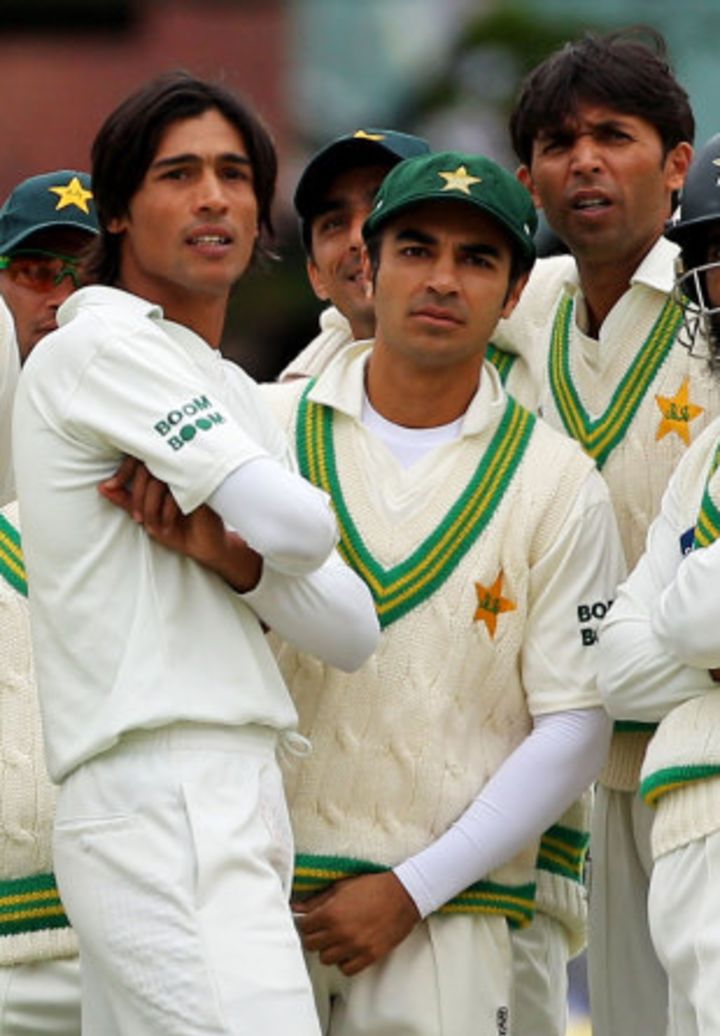A wise judgement, with a good deal of worldliness
In handing the judgement, the tribunal has stripped down all surrounding noise to the one basic question it sets out to resolve: were the three no-balls fluke or fix? The answer should now be very clear

It has taken a few days for matters to become clear. My first reaction, when the verdicts were announced, was regrettably coloured by the sternness of the predictions beforehand. Everyone was shouting for life bans, one definitely, two probably, three maybe. In that din, a minimum sanction across the board for Salman Butt, Mohammad Asif and Mohammad Amir of five years seemed a little light.
But as the evening wore on, as the days have passed since and as the judgment finally has fully been taken in, the sanctions have begun to make more and more sense. That is why perhaps they are judges and we are not.
There is an inherent wisdom in the sanctions, as well as heart and a good deal of worldliness. Given that the guiding spirit behind them has been that of Justice Albie Sachs, a celebrated anti-apartheid activist and immensely respected constitutional court judge, it isn't a surprise. Slowly, over the course of the January hearings, it began to emerge, in bits and pieces that Sachs may have a key impact at the end. Those who booed him when he came out of the Qatar Financial Centre on the final day in Doha were, in short, ignorant cretins.
Five years, as is reasoned - and that is the bare minimum and dependent on other factors - is no small break for an elite athlete. In most cases, it is a career-ending one. At least one of the players, privately, decided first with some bluster that he will fight to stay fit and return, only to, with the deepest sigh of resignation I have seen, conclude a day later that he might not. It is that kind of period.
But there is an opportunity for redemption and rehabilitation, themes that flow through Sachs. It may not be as sportsmen that they redeem themselves, but as men an opportunity exists, especially for Butt and Asif. They have not seized it yet. Perhaps they can't, with the criminal case in mind, but it is there. That is the message.
There is as well an observation from the tribunal that spot-fixing is not as serious as match-fixing. Purists, of whom many suddenly appear on such occasions, will gripe that corruption deserves maximum punishment whatever the grade of it. That argument has force. The tribunal saw what they did as wrong but not in such absolutist terms and away from the cacophony of ex-players and at a distance, I can see that too. That the players didn't, to the tribunal's mind, make any money out of it, that the result of the Test wasn't affected were, ultimately, logical, mitigating factors.
In fact, the only problem, I think, is not leniency. With the greatest of respects, that is the existence, in the minds of the players and no doubt, many Pakistanis, of a theoretical escape clause. Both Shahid Karim and Yasin Patel have said that the sanctions would be lower had the code allowed it; their players have indicated this with greater force. These things quickly acquire a size and life of their own.
The judgment itself is an immense work and one that will not rust with time. It is surprisingly light in its reading and constructed with all the care that goes into the world's finest sculptures.
The tribunal has made a recommendation in its judgment to afford some flexibility in the code for minimum sanctions. But the tribunal has not specifically referred to this case or players. No exceptional circumstances have been found to exist in this case and their reading of the code leaves no room to go below the five years in the matter of Amir. This point must not be lost and especially not to be replaced by a feeling of grievance or a sense of injustice, especially against Amir.
If you wanted to, you could quibble over the effectiveness of a rehabilitation programme under the auspices of any PCB administration. Is it too much of a risk to leave such a dysfunctional organization to deal with something like this? Soon a different administration, with different fools will arrive, bringing with it different compulsions and politics and intrigues. Has the tribunal perhaps revealed a little naivete in their understanding of Pakistan? Perhaps, but it is not their job to account for it. The spirit cannot be questioned.
The judgment itself is an immense work and one that will not rust with time. It is surprisingly light in its reading and constructed with all the care that goes into the world's finest sculptures. It should be translated in Urdu and made a mandatory read in Pakistan because it is testament to the intrinsic impartiality and reason of man.
There is no conspiracy against the three players, there is only evidence. There is no recourse to rumours and hearsay and speculation, there is only evidence. There is no taking into account all the whispers of the past, or the paranoia that floods through Pakistan cricket, there is only evidence. There is sympathy for the players and the benefit of doubt given, but there is evidence. All surrounding noise has been stripped down simply to the one basic question it sets out to resolve: were the three no-balls fluke or fix?
The answer should now be as clear in the minds of everyone as it is in the minds of the tribunal.
Osman Samiuddin is Pakistan editor of ESPNcricinfo
Read in App
Elevate your reading experience on ESPNcricinfo App.